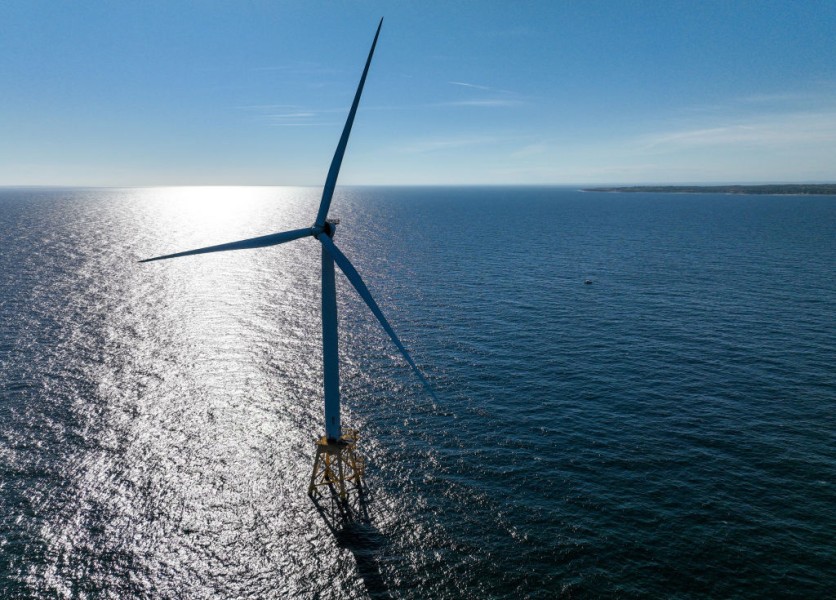Two US environmental agencies, the Bureau of Ocean Energy Management (BOEM) and the National Oceanic and Atmospheric Administration (NOAA), have collaborated to protect the critically endangered North American right whales by using artificial intelligence (AI).
With only around 360 of these majestic creatures remaining, the agencies are implementing a novel strategy to monitor the impact of offshore wind farms on their habitat, particularly along the East Coast, where wind farm development is on the rise (via Electrek).

US Offshore Wind Farm Expansion
This initiative aligns with President Biden's ambitious goal of deploying 30 gigawatts of offshore wind by 2030. As of September 2023, 30 offshore wind lease areas along the East Coast highlight the urgency of addressing potential threats to marine life, especially the North Atlantic right whale.
The strategy employs a combination of AI and passive acoustic monitoring to track the whales' whereabouts and assess the effects of offshore wind development on their environment. This innovative approach aims to protect the whales and support the responsible expansion of offshore wind energy.
BOEM Director Elizabeth Klein emphasized the administration's commitment to responsible offshore wind energy development, stating, "That's why we have increased our efforts to develop a strategy - based on the best available science - that will allow us to protect the North Atlantic right whale while meeting our offshore wind goals that are necessary to curb climate change and protect the environment."
Their Plan
The agencies have outlined a comprehensive plan, encompassing key actions such as avoiding leasing in areas that may impact whale habitat, setting noise limits during construction, and supporting research for quieter technologies. They also plan to conduct robust sound field verification to ensure that noise levels from offshore wind activities stay within specified thresholds.
The news came just before Equinor and BP announced a lease swap for New York and Massachusetts offshore wind projects. The agreement requires Equinor to take full ownership of the Empire Wind lease and projects, while BP will take full ownership of the Beacon Wind lease and projects.
In a separate report, NOAA stated that there were 67 confirmed large whale entanglements nationwide in 2022, the most recent year for which data is available.
NOAA Fisheries Assistant Administrator Janet Coit emphasized the broader impacts of climate change on the whales, stating, "Climate change is affecting every aspect of right whales' survival, changing their ocean habitat, their migratory patterns, the location and availability of their prey, and even their risk of becoming entangled in fishing gear or being struck by vessels."
The agencies are also collaborating on multiple fronts to support the strategy. BOEM, NOAA Fisheries, and the Department of Energy are actively developing advanced technologies to enhance the detection, monitoring, and avoidance of negative interactions between marine mammals and offshore wind facilities.
Furthermore, the significant investments of the Inflation Reduction Act (IRA) funds are being made to conserve and recover endangered North Atlantic right whales. BOEM has committed over $13.8 million to acoustic impact modeling and various right whale-related studies, while NOAA Fisheries dedicated $82 million to monitoring, computer modeling, vessel strike risk reduction, and enforcement efforts.
Stay posted here at Tech Times.
Related Article : New Study Warns Offshore Wind Farms Vulnerable to Cyberattacks

ⓒ 2025 TECHTIMES.com All rights reserved. Do not reproduce without permission.




